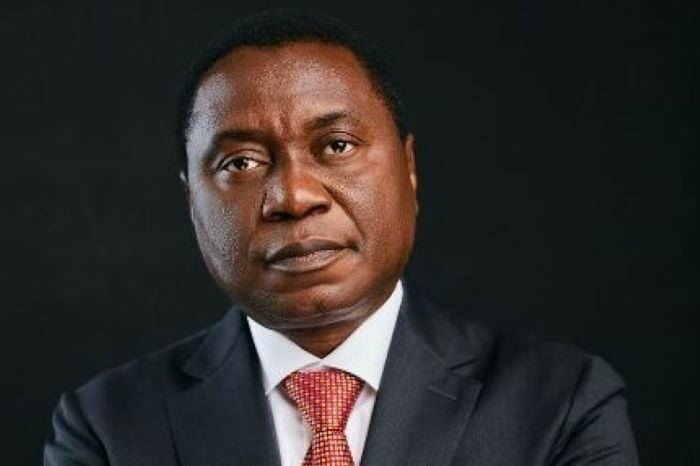Few Nigerians have so deftly combined enterprise, vision, and patriotism as Thomas Akoh Etuh – an entrepreneur whose hands-on leadership has helped transform Nigeria’s agricultural landscape, restore confidence in domestic industry, and rekindle faith in the power of private initiative to drive national renewal.
With over 36 years of experience spanning agriculture, banking, telecommunications, and finance, Etuh embodies the quiet yet determined spirit of a reformer. He currently serves as Chairman of the Board at 9mobile, a position he assumed in July 2024 following the company’s acquisition by LH Telecommunications. At a time when the telecom operator was gasping for relevance – its subscriber base shrinking and investor confidence at a historic low – Etuh’s appointment became a turning point. His steady hand and strategic focus stemmed customer migration, rebuilt the brand’s credibility, and restored trust among investors and consumers alike.
Beyond telecoms, Etuh’s footprint runs deep through Nigeria’s economic arteries. He has chaired institutions such as Unity Bank Plc and Notore Chemicals Industries Plc, and founded the TAK Group of Companies.
This conglomerate includes Mainstream Energy Solutions Limited, Aero-Tak Limited, TAK Asset Management Limited, Superphosphate Fertiliser and Chemicals Limited, Funtua Fertiliser & Chemicals Limited, and TAK Agro & Chemicals Limited.
If Nigeria’s journey toward agricultural self-sufficiency were to be told in chapters, Etuh’s name would feature prominently in every key reform.
The Farmer’s Executive
From modest beginnings in Nigeria’s Middle Belt to steering some of Africa’s most transformative agribusiness initiatives, Thomas Etuh has demonstrated that visionary enterprise – anchored in integrity and hard work – can nourish both people and prosperity.
Under his watch, fertiliser ceased to be a luxury commodity or a political token. It became a tool of empowerment for millions of smallholder farmers. “Agriculture,” he often says, “is not just business; it is the foundation of our national security.”
Feeding a Nation, One Reform at a Time
When Etuh entered Nigeria’s fertiliser industry, the sector was in disarray – monopolised by middlemen, distorted by corruption, and far removed from the real farmer. Through relentless advocacy and partnership with the federal government, he helped conceptualise and implement the Presidential Fertiliser Initiative (PFI), which revolutionised local blending, cut costs, and ensured that genuine farmers gained direct access to affordable inputs.
The transformation was dramatic: from fewer than 10 functional blending plants in 2016 to over 70 operational plants today – each serving as a hub of rural industry, job creation, and renewed hope. Through FEPSAN (Fertiliser and Inputs Suppliers of Nigeria), which he led as president, and his flagship company, Mikap Group, Etuh facilitated the delivery of more than 50 million bags of NPK fertiliser nationwide, drastically reducing the country’s import dependence and saving it billions in foreign exchange.
Championing Local Production and Value Chains
Etuh’s vision goes beyond fertiliser. He sees agriculture as an ecosystem, not a silo. Through Mikap Nigeria Limited, he has invested across the entire value chain – fertiliser blending, crop nutrition, logistics, warehousing, and market linkages – ensuring that prosperity flows from the soil to every level of the economy.
His model integrates farmers with cooperatives, microfinance institutions, and state governments, thereby opening credit channels to smallholders who were previously excluded from formal finance. In every state where his projects operate, livelihoods findimprove, youth gain purpose, and women gain a voice in the economy.
From FEPSAN to National Policy
As President of FEPSAN, Etuh became both the voice and conscience of Nigeria’s fertiliser sector. He championed local sourcing of raw materials, linking Nigeria’s limestone, urea, and phosphate industries into a coherent national supply chain.
His advocacy culminated in the National Fertiliser Quality Control Act, now widely recognised as a model framework for sub-Saharan Africa—a law that guarantees product integrity, consumer protection, and sector transparency.
Beyond Business: Empowering Communities
Etuh’s influence transcends boardrooms and balance sheets. Through the Thomas Etuh Foundation, he has extended opportunities to communities in Kogi, Benue, and Nasarawa States, funding scholarships, supporting healthcare facilities, and promoting youth entrepreneurship.
In 2024, his Foundation launched the Green Rural Initiative, providing start-up kits – fertiliser, seedlings, and training – to 5,000 new farmers annually. It is a bold reaffirmation of his belief that “the prosperity of cities depends on the productivity of villages.”
A Leader Rooted in Values
Soft-spoken yet decisive, Etuh is known for strategic thinking, meticulous planning, and quiet philanthropy. Colleagues describe him as “a man who negotiates with empathy but executes with precision.”
An alumnus of Ahmadu Bello University, Zaria, with advanced management training in Nigeria and abroad, he brings intellectual depth to a sector often undervalued. Despite his diverse board roles across manufacturing, finance, and telecoms, he remains most at home where his story began—in the soil.
Recognition Beyond Borders
Under Etuh’s leadership, regional and global bodies such as the African Fertiliser and Agribusiness Partnership (AFAP) and the Alliance for a Green Revolution in Africa (AGRA) have cited Nigeria as a continental model of private-sector-led agricultural transformation.





